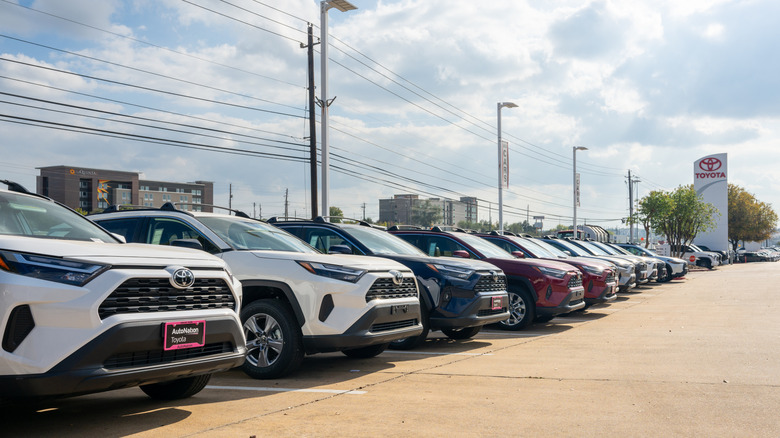As a society, it seems we have moved on from cramming ourselves into retail stores the day after Thanksgiving to score some sales on holiday purchases. Of course, your local dealerships will be blasting the airwaves with ads trying to convince you to wake from your carb-induced slumber and stroll into the showroom for big savings! Don’t fall for it. Here is why car shopping on Black Friday probably isn’t worth it.
If you are in the market for a pre-owned car, that segment typically isn’t subject to the month-to-month fluctuation of new car deals. The reason is that new car discounts are often tied to manufacturer rebates, finance programs, and dealer incentives to move units. Used cars move up and down based more longer-term trends like buyer activity, inventory demand, and other economic factors.
A recent study from iSeeCars.com found that, while the Thanksgiving and Black Friday weekend resulted in 9.5% better deals for used cars compared to other times, buyers fared much better on other holiday weekends.
You are probably too late for model year leftovers
On a more granular level, used car prices do not have as much wiggle room for discounts compared to new cars. The objective with used cars is to find the best value on the market, and not the biggest discount.
It is common practice for automakers to launch the next year’s model typically late summer, early fall. In this case, 2026 models would come out sometime around September or October. While this is not a hard and fast rule, as some cars have irregular launch schedules, the time to score a deal on the previous model year is usually late summer, as automakers and dealers want to clear them out to make room for the incoming batch of cars.
That means that anyone shopping late November is likely going to be looking at the most current models, and therefore the dealer’s motivation to budge on a car that just landed may be lower compared to a few months prior. If you happen to be shopping for the most recent model year. It may pay to wait a few weeks more.
Discounts tend to be better closer to New Years
This isn’t to say that there are no deals to be had this coming weekend, but whatever discounts are available are likely to carry through into December, and possibly get better as we approach the end of year.
You have probably heard the common car-buying advice of “shop for deals at the end of the month.” The logic behind this advice is that dealers have specific sales targets to meet, and they often receive bonuses for hitting or exceeding those targets. So if a dealer is close to that target towards the end of the month, they may be more likely to drop their price in order to get over the line. While there are a few factors that make the end-of-month shopping not always valid, both dealers and automakers indeed want to end the year with strong sales. This means that the likelihood of increased rebates from the manufacturers and more motivation from the dealers to move units.
However, keep in mind that your ability to score a deal is related to how much inventory is on the ground. Dealers want to move units that are currently in stock. If you are shopping for a model in high demand and dealers are selling them before they get off the truck, don’t expect some big holiday savings.
Negotiating prices in person is not always the most effective strategy
The key reason why you will be inundated with ads over the next week is that the dealerships want you to shop for a car the old-fashioned way. Salespeople know they have the advantage when you are physically in the showroom and already mentally primed to get a “deal.” The objective for the dealer is to jam as many buyers as possible onto the lot to create a sense of urgency, because if you don’t take this deal…someone else will. However, your goal is to get the best price possible. In order to do so you need a comparison of deals from several stores. Doing that in person takes way too long and is logistically a hassle.
If you happen to be shopping for a car you want to have the dealers send you prices in writing ahead of time. For new cars, you can then compare the relative discounts to the sticker price and see who is offering the lowest out the door cost. On pre-owned cars, you can see who is offering straightforward pricing versus which dealers are trying to play games with their advertised numbers. Of course, that process is easier said than done, and some dealers won’t cooperate. Any dealer that demands you be there “in person” get a price, is not a place you want to do business with.
Tom McParland is a contributing writer for Jalopnik and runs AutomatchConsulting.com. He takes the hassle out of buying or leasing a car. Got a car buying question? Send it to [email protected]






